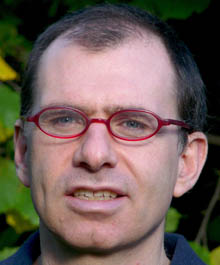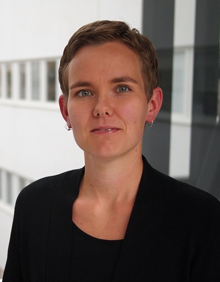Specific informations on research projects
In order to better understand how T cells make
- WP 1: Early stages in the career of a T cell
- WP 2: Plasticity and reprogramming of differentiated T cells
- WP 3: Immunopathologies caused by dysregulated T cells
- WP 4: -omics and bioinformatics
In WP1, we aim to identify critical molecular players involved in the development and differentiation of specific CD4+ T cell subsets. By using global strategies and methods (e.g. multi-colour flow cytometry, RNA-seq, single-cell RNA-seq, small ncRNA-seq, Bi-seq, ChIP-seq, in silico prediction of transcription factor target genes), candidate genes involved in the CD4/CD8 T cell fate choice during thymic development will be analysed, including molecular factors determining thymic Treg development. Regulatory molecules controlling the switch of naive CD4+ T cells towards different types of helper T cell subsets (including induced Tregs) will also be identified. Novel candidate genes will be knocked down in thymocytes and mature T cells to reveal and validate their specific function in vitro in human and mouse cells, and in vivo in mice.
In WP2, we will study environmental and molecular factors controlling the activity and reprogramming of differentiated T cells, a process having major implications for the functioning of the immune system in healthy individuals and during immunopathologies. Epigenetic signatures and metabolic pathways controlling the activity and reprogramming of helper T cell subsets (e.g. Th17 and Tfh cells) will be analysed. Similar strategies and methods as described in the first workpackage (e.g. multi-colour flow cytometry, RNA-seq, single-cell RNA-seq, Bi-seq, ChIP-seq, mass spectrometry, in silico prediction of transcription factor target genes, screening of small molecule libraries) and state-of-the-art promoter-capture HiC will be applied. New candidate molecules and pathways identified as critical players in T cell subset plasticity will be knocked down or over-expressed in mature T cells to reveal and validate their specific function in vitro in human cells, and in vivo in mice.
In WP3, we will analyse the differentiation states of T cells responsible for causing immunopathologies. The work will exploit mouse models and patient samples with a focus on autoimmune diseases (including type 1 diabetes and multiple sclerosis) and allergy. We will characterise T cells isolated from pathogenic settings using a broad range of methodologies (e.g. multi-parameter flow cytometry, single-cell RNA-seq). The role of specific genes and environmental factors in controlling the differentiation of T cells into pathogenic phenotypes, including Th17 and Tfh cells, will be assessed. We will also study how Treg populations develop and function in settings of immunopathology. Newly identified target genes will be knocked down in T cell subsets to assess their importance for the pathophysiology of disease. These studies will pave the way for identification of novel biomarkers and new therapeutic targets of autoimmune and atopic diseases.
WP4 is the glue between all scientific work packages. Here, we will generate and analyse all genome-wide -omics data (e.g. RNA-seq, Bi-seq or ChIP-seq) of the whole consortium and develop novel bioinformatic algorithms for their integration and interpretation, including an in silico transcription factor binding site prediction tool and a tool for multi-level biomarker signature detection. Highly qualified bioinformaticians from the academic and private sector will work together to unify data collection methodologies and bioinformatic analyses in order to maximise cross-network and cross-project comparability. This step will be facilitated by the EMBL-EBI, which has strong expertise in protocol optimization and setting standards in international data sharing. Computational predictions will be refined and validated in functional in vitro and in vivo experiments in order to generate a novel and holistic view of differentiation and plasticity of CD4+ T cell subsets and to identify T cell related molecular signatures as novel biomarkers for autoimmune diseases.

Early stages in the career of a T cell
ESR 4
Transcriptional networks regulating helper and cytotoxic T cell lineage specification: identification of MAZR/Patz1 target genes during T cell development
Discipline
Molecular Immunology, Immunobiology
Institution
Medical University of Vienna
Department/Institute:
Division of Immunobiology, Institute of Immunology

Objectives
- Identification of MAZR/Patz1 target genes and functional analysis of selected target genes
- Molecular characterisation of the transcriptional networks regulated by MAZR
- Assessment of the contribution of selected target genes to the control of CD4 versus CD8 lineage fate
- Generation of a MAZR reporter mouse
Expected Results
- ChIP-seq and RNA-seq data from WT and MAZR-null thymocytes;
- identification of MAZR/Patz1 consensus DNA binding sites;
- pathway analysis data;
- molecular characterisation of MAZR//Patz1 target genes and of pathways downstream of MAZR/Patz1
- mouse model to monitor MAZR/Patz1 expression in immune cells
Planned Secondments
- Qiagen (Aarhus, Denmark), data analysis
- Helmholtz Centre for Infection Research (Braunschweig, Germany), characterisation of selected binding sites
- Instituto de Medicina Molecular (Lisbon, Portugal), target validation in human thymocytes and T cells
More information can be obtained from…
ESR 8
Factors determining thymic regulatory T cell development and peripheral homeostasis of naive regulatory T cells in humans
Supervisor
Discipline
Cellular and Molecular Immunology
Institution
Instituto de Medicina Molecular
Lisbon, Portugal
Department/Institute:
Human Immunodeficiency & Immune Reconstitution

Objectives
- Identification of factors determining Foxp3+ regulatory T cell (Treg) committement in the human thymus.
- To identify the mechanisms controlling the maintenance of naive peripheral Tregs in order to ensure a continuous replenishement of the effector Treg pool throughout linfe and the prevention of autoimmune diseases.
Expected Results
- Profile of human thymic Treg differentiation and their signalling pathways (RNA-seq, small ncRNA-seq, Bi-seq, and flow cytometry data).
- in silico models of human thymic Treg development and homeostasis.
- Validation of candidate molecules and cell subsets in both 3D organ cultures of human thymus and tonsil, and 2D co-cultures of progenitors with thymic epithelial cells ans/or hematopoietic antigen-presenting cells.
Planned Secondments
- Helmholtz Centre for Infection Research (Braunschweig, Germany): in silico modelling
- Eagle (Cambridge, UK): analysis of RNA-seq, small ncRNA-seq, and Bi-seq data.
More information can be obtained from…
ESR 7
Tracking helper T cell differentiation pathways one cell at a time
Supervisor
Discipline
genomics and bioinformatics
Institution
Wellcome Trust Sanger Institute, UK
Department/Institute:
Teichmann group

Objectives
- Characterization of gene expression programmes during switches in cell state; validation of regulatory candidates including transcription factors and signaling pathways
Expected Results
- Single cell RNA-Seq data for differentiation pathways in vitro
- single cell RNA-Seq data for selected cell populations ex vivo
- bioinformatics processing and database containing the transcriptomics data
- antibody reagent(s) for selected targets.
Planned Secondments
- Medical University of Vienna (Austria): genome editing of T cells
- INSERM (Paris, France): in vivo mouse models for validation of in vitro data
- Abcam (Cambridge, UK): generation of antibody reagents
More information can be obtained from…
Plasticity and reprogramming of differentiated T cells
ESR 1
Functional importance and molecular characterisation of differentially methylated regions in helper T cell subsets
Supervisor
Discipline
Cellular and Molecular Immunology
Institution
Helmholtz Centre for Infection Research
Braunschweig, Germany
Department/Institute:
Experimental Immunology

Objectives
- To identify and functionally characterize uniquely differentially methylated regions in murine and human helper T cell subsets
Expected Results
- Generation of Bi-seq and RNA-seq data from ex vivo isolated helper T cell subsets
- Bioinformatic analysis of Bi-seq and RNA-seq data and identification of differentially methylated regions
- Identification of transcription factors binding to selected candidate regions using in silico approaches and chromatin immunoprecipitation (ChIP)
- Knock down of candidate regions in primary T cells using CRISPR-Cas9 technology to study functional importance for plasticity and phenotype of helper T cell subsets
Planned Secondments
- EMBL-EBI (Cambridge, UK): single-cell RNA-seq
- Eagle (Cambridge, UK): analysis of Bi-seq and RNA-seq data
- Medical University Vienna (Austria): genome editing of T cells
More information can be obtained from…
ESR 2
Defining the role of metabolic pathways in helper T cell subsets
Supervisor
Discipline
Cellular and Molecular Immunology
Institution
Helmholtz Centre for Infection Research / Twincore
Hannover, Germany
Department/Institute:
Infection Immunology

Objectives
- To understand the role of metabolic pathways on activation and plasticity of helper T cell subsets
- To screen a library of small molecules influencing T cell metabolism and plasticity, guided by our recent discovery that glycolytic-lipogenic metabolism controls T cell differentiation
Expected Results
- New small molecules influencing T cell plasticity
- Metabolic pathway analysis
- RNA-seq data from helper T cell subsets
- transcription factor binding to candidate genes (in silico)
- Knock out of candidate genes in murine and human T cells using CRISPR-Cas9 technology to study functional importance for plasticity and phenotype of helper T cell subsets
Planned Secondments
- Babraham Institute (Cambridge, UK): metabolomics
- Abcam (Cambridge, UK): antibody generation against newly identified targets
- University of Turku (Finland): RNA-seq data analysis
- Genomatix (Munich, Germany): in silico analyses
More information can be obtained from…
ESR 10
How the T cell response upon vaccination changes with age
Supervisor
Discipline
Immunology
Institution
Babraham Institute, Cambridge, UK
Department/Institute:
Lymphocyte Signalling and development

Objectives
- Build an in silico model of the aged germinal centre from in vivo data
- Generate in silico prediction for how perturbing the aged germinal centre can improve the size and quality of the response
- Test the in silico predictions in vivo
Expected Results
- in silico models of the aged germinal centre
- Predictions of how to manipulate the germinal centre with age
- Test how in silico predictions alter the response in vivo
Planned Secondments
- Genomatix (Munich, Germany): analysis of RNA-seq data
- Helmholtz Centre for Infection Research (Braunschweig, Germany): in silico modelling
More information can be obtained from…
Immunopathologies caused by dysregulated T cells
ESR 3
Follicular helper T cell differentiation in autoimmune diabetes: role of the CD28 pathway
Supervisor
Discipline
Cellular and Molecular Immunology
Institution
University College London, UK
Department/Institute:
Institute of Immunity & Transplantation

Objectives
- To determine the influence of CD28 and its ligands CD86 and CD80 on T cell activation and differentiation in vitro and in vivo
- To study the relationship between Tfh differentiation and type 1 diabetes using mouse models and patient samples
- To study the transcriptional control of CD80 and CD86 expression
Expected Results
- Generation RNA-seq data from T cells activated under varying conditions of CD28 costimulation
- Bioinformatic analysis of RNA-seq data
- Generation of methylation & ChIP-seq data for CD80 & CD86 loci under various stimulation conditions and in different cell types
- Identification of biomarkers of pathogenic T cells
Planned Secondments
- EMBL-EBI (Cambridge, UK): mining publically available databases, bioinformatic identification of factors controlling CD80 & CD86 expression
- Bayer Pharma (Wuppertal, Germany): modeling of networks controlling CD80 and CD86 gene regulation
- INSERM (Paris, France): test of candidate genes in mouse models
More information can be obtained from…
ESR 9
Functional subsets of human helper T cells
Supervisor
Discipline
Cellular and Molecular Immunology
Institution
Instituto de Medicina Molecular, Lisbon, Portugal
Department/Institute:
Lymphocyte Regulation

Objectives
- Collection of Tfr and Tfh subsets from tonsils of atopic and non-atopic individuals (collaboration with local clinical departments)
- Identification of unique markers of human Tfr and Tfh subsets involved in type 1 or type 2 immune responses
- Validation of functional importance of selected candidate genes in clinical samples (human tonsils)
Expected Results
- RNA-seq and Bi-seq data from human Tfh and Tfr subsets
- Identification and knockdown of candidates genes in primary cells for functional testing
Planned Secondments
- Babraham Institute (Cambridge, UK): methylome of human Tfr/Tfh subsets
- Eagle (Cambridge, UK): DGE-based biomarker discovery
- University of Turku (Finland): data mining and pattern recognition
More information can be obtained from…
ESR 11
Plasticity and reprogramming of differentiated T cells
Supervisor
Discipline
Cellular and Molecular Immunology
Institution
Babraham Institute, Cambridge, UK
Department/Institute:
Lymphocyte Signalling and development

Objectives
- Defining the role of environmental factors on helper T cell subsets
Expected Results
- New insights into how local nutrient and toxin levels influence T cell differentiation
- New insights into how local nutrient and toxin levels influence T cell activity and plasticity
- Metabolic profiling of helper T cell subsets (Mass-spec)
- Bioinformatic analysis of RNA-seq and metabolic data and identification of metabolic pathways
Planned Secondments
- Instituto de Medicina Molecular (Lisbon, Portugal): analysis of human T cells
- Qiagen (Aarhus, Denmark): analyse RNA-seq and metabolic data sets
- University College London (UK): autoimmunity in mouse models
More information can be obtained from…
ESR 13
Characterization of Tregs from inflamed tissues during autoimmunity
Supervisor
Discipline
Immunology
Institution
Institut National de la Santé et de la Recherche Médicale (INSERM) and UPMC
Department/Institute:
Center of Immunology and Microbial Infections - Paris

Objectives
- Identification of molecular pathways triggered by inflammatory factors in Tregs depending on the autoimmune disease (multiple sclerosis, type 1 diabetes) and target tissue (central nervous system, pancreas). The analysis of the impact of different types of inflammation on Treg homeostasis and function will improve our understanding of the pathophysiology of autoimmune diseases and help design new treatments.
Expected Results
- Generation of RNA-seq and Bi-seq data from ex vivo isolated Treg from inflamed central nervous system and pancreas during autoimmunity
- Bioinformatic analysis of RNA-seq and Bi-seq data and identification of differentially methylated regions
- Identification of transcription factors binding to selected candidate regions using in silico approaches and chromatin immunoprecipitation (ChIP)
- Knock down of critical pathways in Treg to study their functional importance in autoimmunity
Planned Secondments
- EMBL-EBI (Cambridge, UK): generation of RNA-seq and Bi-seq data
- University College London (UK): T cell signature in type 1 diabetes
- Genomatix (Munich, Germany): RNA-seq and Bi-seq data analysis
More information can be obtained from…
-omics and bioinformatics
ESR 5
Cross-omics prediction tools for analysis of gene regulatory sites in helper T cells
Supervisor
Discipline
Bioinformatics
Institution
QIAGEN Aarhus A/S, Aarhus, Denmark
Department/Institute:
Engineering

Objectives
- Improved accuracy analysis of regulatory effects in helper T cells based on both differential experimental data of partners and publicly available -omics datasets
Expected Results
- Predicted regulatory effects for partner data
- integration of experimental data from existing repositories
- identification of functional regulatory sites
- visualization of evidence for functional site identification
Planned Secondments
- Eagle (Cambridge, UK): cloud based data processing pipelines
- Medical University of Vienna (Austria): statistical data analysis and modelling
More information can be obtained from…
ESR 6
Comparative model-based analysis of the translatability from in vitro to in vivo and from animal model to human of cytokine responses and adverse events of T cell engaging antibodies
Supervisor
Discipline
Systems Biology/Pharmacology; Pharmacometrics
Institution
Bayer Healthcare Pharmaceuticals, Wuppertal, Germany
Department/Institute:
Clinical Pharmacometrics – Systems Pharmacology & Medicine

Objectives
- The aim is to develop concepts and procedures compliant with MABEL approach to allow rapid and safe identification of maximum tolerated doses in clinical phase I studies. New models will be developed to help to improve design of preclinical studies in terms of group size and parameters.
Expected Results
- model-based meta-analysis of preclinical and clinical data from T-cell engaging drugs
- assessment of translatability of preclinical read-outs
- concept for design of early clinical trials with T-cell engaging agents
Planned Secondments
- EMBL-EBI (Cambridge, UK): bioinformatics-based construction of cytokine network graphs relevant for modeling of biomarker responses in vitro/in vivo
- Helmholtz Centre for Infection Research (Braunschweig, Germany): modeling of T cell networks, integration into whole-organism models, simulation studies and analysis of clinical benchmarking data
More information can be obtained from…
ESR 12
Computational methods for characterising T cell-related signatures in health and disease
Supervisor
Discipline
Bioinformatics
Institution
University of Turku, Finland
Department/Institute:
Turku Centre for Biotechnology

Objectives
- To develop of data-driven computational methods to robustly characterise T cell-related molecular signatures and networks at multiple levels and use the signatures to predict health and disease states
Expected Results
- Novel data-driven computational tools for analysing high-dimensional molecular data
- Novel experimentally testable computational predictions and hypotheses about T cell-related signatures in health and disease
Planned Secondments
- Qiagen (Aarhus, Denmark): databases and tools for signature characterisation
- EMBL-EBI (Cambridge, UK): single-cell data analysis
- Bayer Pharma AG (Wuppertal, Germany): translational relevance of predictions
















